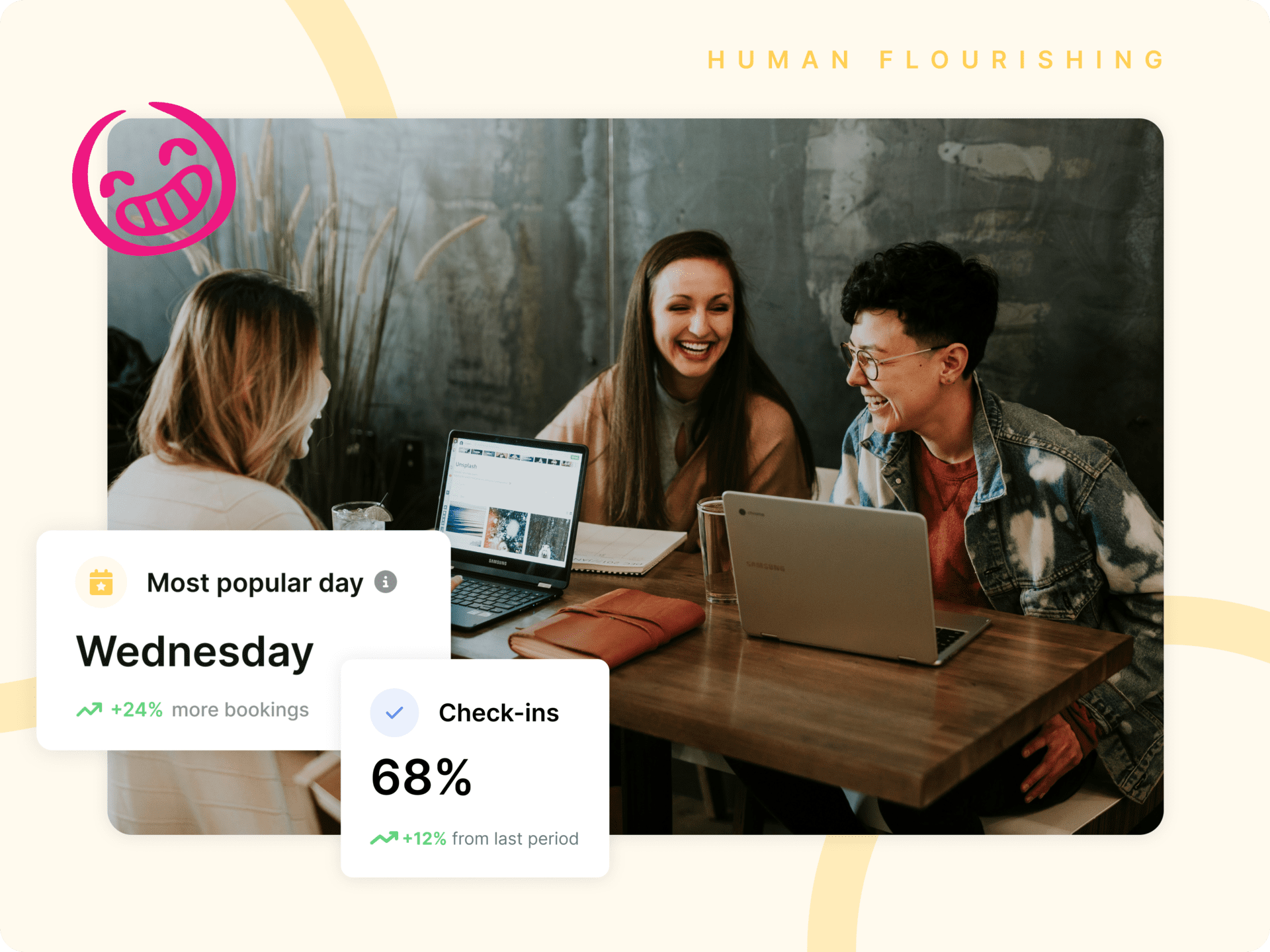How to help your teams plan to collaborate when plans change
Empowering team collaboration when plans change in-person and virtually is essential for companies as the future of work begins. Maintaining a successful balance can yield great rewards, and using the right planning tools to make this easy for everyone makes all the difference.
However, as we all know, plans can change at the last minute, and without being notified of those changes, it would almost be virtually impossible to connect with your team when it counts. The disappointment and frustration around wasted commutes to the office is already plaguing company culture with the unrelenting disease of discouragement, which I can assure you nobody wants!
Combating last-minute cancelations

From Kadence data shown above, we discovered that nearly half of all bookings made in a single day are canceled. This means that users do not have a problem with making a booking, they just don’t keep them. The question here is why are so many canceling their bookings at the last minute.
Imagine you’re in Marketing, and you haven’t seen your colleague face-to-face in over a month. You’ve checked your team’s activity on the Kadence mobile app or on Microsoft Teams and you can see that your colleague has booked a desk in the office for all day on Wednesday. Now you know when they’re going to be in, you search for and book an available space nearby on the interactive office floor map, so you can catch up in person. Wednesday comes, and you arrive at the office and check in to your booking but you notice your colleague hasn’t turned up. You go back onto your Kadence mobile app and you discover they have canceled their booking for that day. You look around the office to see if there are any others you can connect with but unfortunately, you do not recognize anyone. Reluctantly you decide to stay, even though you are frustrated about another wasted commute to the office. If that’s you, we get it, and we feel your pain!
It happens, and as frustrating as it may seem, don’t despair. Finding the right rhythm for your work can take time as everyone increasingly adjusts to a new normal. Problems like this highlight the need for tools to help manage your spaces like a dream, as well as coordinate individual and team schedules.
Does planning ahead infringe on flexibility?

Flexibility is perhaps one of the greatest benefits employers can offer their teams, and according to a recent McKinsey article over 44% of workers that had left the workforce, returned when they were offered the flexibility they needed to care for family, take care of their own personal physical and emotional health, and a better work-life balance. There’s no question that this is a huge benefit and could lead to hesitancy for planning too far ahead.
Many of us fall into these categories which means planning ahead is extremely important, especially as time can be a very limited commodity. Having the flexibility, as well as the right tools at hand to adjust your plan and notify others is a huge blessing for both employers and the teams they serve. We need a hybrid framework whereby employers can offer flexibility to help with the varying needs of our lives, as well as to help improve individual and team performance. A hybrid framework is a benchmark that works for both the needs of the employee and the business. These could be in the form of policies, and best practices that can be set up to encourage people to keep their office commitments, not make unnecessary last-minute cancelations, and ensure that any changes are communicated ahead of time.
Spontaneity isn’t a bad thing

Spontaneity is definitely not a bad thing when it comes to making last-minute bookings as you can see from some of our findings above! It’s those ‘light bulb’ moments, those crazy ideas that come from nowhere that mean you need to find suitable spaces for you and your team fast. Being able to capitalize on these moments, and leverage getting the right people together in the right spaces, and at the right times makes all the difference in making these ideas into a reality.
Having the right tools that allow you to see individual and team schedules and book the spaces you need in seconds is the secret weapon for rounding up the troops at the last moment to change the world!
Conclusion
Adopting a tool that gives everyone clear, and concise schedule visibility is an obvious way you can help your teams plan to collaborate, even when plans change. Making a plan is one thing, but being able to make another on the fly when plans change is a different story altogether. See how Kadence makes planning in advance or at the drop of a hat not only doable but incredibly easy.
How do you help your teams plan to collaborate when plans change?





